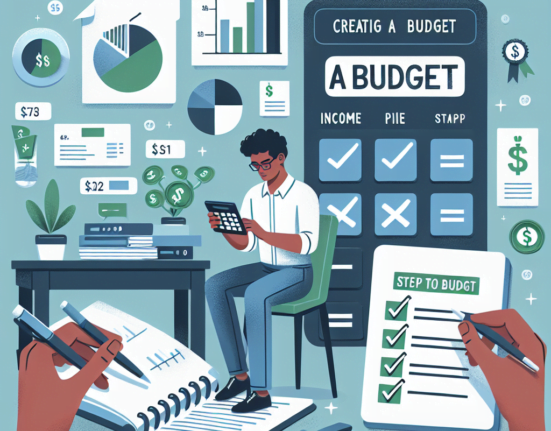Financial independence may denote diverse things to different people. Some may see it as the freedom to quit their jobs, buy a house or manage their time and money as they wish. Regardless, the path to financial independence comprises of deliberate planning and committing to well-defined strategies. This article elucidates judicious strategies and practical steps one can take towards achieving financial independence.
Understanding Financial Independence
Essentially, financial independence implies making a shift from being dependent on an employer’s paycheck to depending on one’s own savings and investments. Achieving this milestone means you have enough money saved and invested to comfortably sustain your current lifestyle without having to actively work for money. It is not about being wealthy, but about having enough sources of passive income to cover your expenses.
Setting Your Financial Goals
Before hitting the road to financial independence, it’s paramount to establish clear financial goals. These may range from retiring early, owning property to meeting your children’s education needs. Financial goals differ from one individual to another, and setting them helps you map your personalized path to financial independence. When setting goals, you need to consider their attainability, and practicality, what you’re willing to sacrifice to achieve them and the time-frame for each.
Creating a Budget and Spending Plan
The next step in this path is to create an operational budget and spending plan. This essentially means assigning every dollar a job. A plan prevents any likelihood of overspending, therefore helping you to live within your means, an integral aspect in climbing up the ladder of financial independence. Budgeting also helps you to track your revenue and expenditure, and make necessary adjustments.
Saving and Investing
Financial independence and the concept of saving and investing largely go hand in hand. Building a substantial emergency fund is one step towards saving. An emergency fund insulates you from unexpected financial crashes and helps sustain your lifestyle in such events. Besides an emergency fund, consider setting up periodic and consistent savings into various investment vehicles such as real estate, stocks, mutual funds and retirement accounts to build considerable wealth over time.
Decreasing Liabilities
Reducing liabilities is another strategy on the path to financial independence. It entails paying down debts, from student loans to credit card debts. The freedom from debts liberates funds previously channeled to the repayments, thus allowing you to channel these funds to savings, investments, and other wealth-building strategies.
Earning More Income
While budgeting and saving are important, increasing your income sources fast tracks your financial independence journey. Consider exploiting skills or hobbies to establish a side hustle and exploring entrepreneurship possibilities to diversify your income streams.
Conclusion
The journey to financial independence may seem daunting, but with the right planning, persistence and patience, it’s accomplishable. Adopting the habits of practical budgeting, consistent saving, prudent investing, reducing liabilities and diversifying income streams are key practices that can set you on the path to financial independence.
FAQs
- What is financial independence?
Financial independence is the state where one has enough savings and investments to support their desired lifestyle without actively working for money. - How can I achieve financial independence?
Achieving financial independence requires a multifaceted approach incorporating budgeting, saving, investing, reducing debts, and diversifying your income sources. - Why is a spending plan important to achieve financial independence?
A spending plan helps you avoid overspending by allocating each of your dollars an intended use, helping you live within your means. - Why is saving and investing a crucial step towards financial independence?
Saving builds a financial safety net for emergencies while investing allows your savings to grow over time, speeding up the journey to financial independence. - What role does income diversification play in financial independence?
By diversifying your income, you create more avenues for saving and investing, hence fast-tracking the journey to financial independence.













